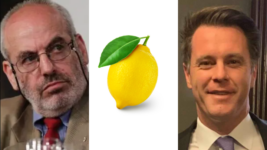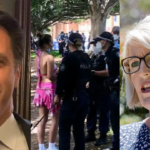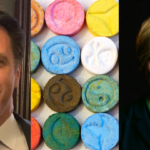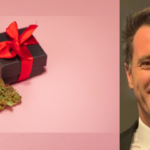New South Wales Introduces Fining Scheme for All Prohibited Drugs

The Minns government launched the Early Drug Diversion Initiative (EDDI) on 29 February 2024 with little fanfare, which is a shame because it does mark a long-pushed-for improvement on the zero-tolerance law enforcement approach to personal drug possession that had applied.
EDDI sees NSW police officers empowered to issue two fines per civilian found in possession of a small quantity of an illicit drug, prior to necessitated arrest, which is the exact same watered-down version of decriminalisation proposed by NSW opposition leader Mark Speakman in June 2022.
The reason NSW premier Chris Minns likely hasn’t sought to make political capital on this drug law reform is EDDI is a compromise on the recommendation to decriminalise made by the Liberal-commissioned inquiry into the drug ice, which was shot down by then premier Dominic Perrottet.
And no one on Macquarie Street seems to be slapping themselves on the backs over the long-sought reform to policing the criminal offence of drug possession, as it’s a weak alternative to decrim. And it’s also an erosion of a policy position desired by many civil society organisations and much of the public.
Indeed, as NSW Greens MLC Cate Faerhmann has pointed out, Minns won the last election on a platform that included drug law reform to be considered at a drug summit, but since entering office, he’s reneged on these promises at every turn, and now he’s quietly placed a lemon on the table.
A tale of two reforms
“Support for drug law reform is growing and it’s also becoming more realistic,” veteran drug law reformist Dr Alex Wodak told Sydney Criminal Lawyers. “We realise that most reforms are slow and incremental.”
“So, I welcome this initiative even though it’s pretty modest,” said the doctor, who was a key player in seeing needle and syringe programs rolled out nationwide in the 1980s. “But it doesn’t go anywhere near as far as the changes which became operational in the ACT on 28 October 2023.”
Like AUKUS, the Liberal-designed and Labor-championed Early Drug Diversion Initiative permits NSW police officers to issue up to two on-the-spot $400 fines in relation to an individual found in possession of a small quantity of an illicit substance.
At this point, the subject of the fine can opt not to pay it, and instead attend an hourlong over-the-phone drug counselling session.
On third strike, however, the subject is arrested and charged. And the fining system is discretionary, meaning an officer can still arrest on first encounter, and past outcomes of the cannabis cautioning scheme show officers do continue to charge, when the alternative is available, in a biased manner.
And Wodak points out that the ACT Labor-Greens government launched a policy of drug decriminalisation late last year, which means the criminal sanctions that did apply have been removed, and only a civil penalty now applies, as well as a counselling option.
“Governments are terrified at the prospect of reforming our drug laws too quickly and losing their electorate,” the Harm Reduction Australia ambassador added. “But our communities are ahead of our politicians in thinking on drug policy. And most attempts at drug law reform pay off politically.”
Those in power know
Members of the Minns cabinet campaigned heavily for drug law reform over the half decade prior to taking office, after a decade of Coalition rule, and, as Faerhmann recalls, Minns promised a drug summit, based on the success of the late 90s summit, and the premier even called for legal cannabis.
As Wodak recalls, following the 1999 NSW Drug Summit, the Carr Labor government determined to establish Australia’s first medically supervised injecting centre in Kings Cross. The public “loved it”, and then NSW premier Bob Carr, later listed it as one of his 10 greatest achievements in office.
“Politicians are much more likely to be criticised for going too slowly than for going too fast,” Wodak continued. “I would like to see the EDDI evaluated independently. And if it’s found to have worked, which I’m sure will be the case”, then proceed to more reform in the manner of decriminalisation.
And the doctor who helped convince Carr to proceed down the drug harm reduction track, considers that most seasoned politicians, as well as senior and experienced police officers, judges and lawyers, all now understand that treating personal drug possession as a crime is regressive.
“These days, when many senior police, or senior politicians retire, it isn’t long before many of them admit that the war on drugs-type approach is a complete waste of time,” the doctor underscored. “Obviously, many of them would have known this while still in office.”
The Uniting Synod of NSW and ACT launched its Fair Treatment campaign in 2018. It calls for decriminalisation in NSW and the ACT. And over 70 civil society organisations support the half-achieved goal, including the NSW Bar Association and the NSW Nurses and Midwives Association.
Mandate clearly ignored
Following the election, and based on Labor pre-election promises, the constituency was expecting a NSW drug summit would be held early in the current term, which would discuss the key matters of the last decade, including decriminalisation, pill testing, drug dogs, strip searches and reducing harm.
When questioned by the Murdoch press on coming ACT decriminalisation last August, Minns stated that he had “no mandate” to consider the reform policy in NSW and added that the summit was being pushed to late in the term. And Faerhmann considers he was backed into a corner.
“It is very disappointing that the Minns government has been so ridiculously cautious about drug law reform, committing to a drug summit, cannabis reform, pill testing,” Wodak lamented, “the list goes on and on.”
According to the doctor, what Minns and senior NSW police are privy to is that heavy-handed drug law enforcement is a complete failure. It doesn’t result in less drugs on the streets but does result in cheaper ones. There is no reduction in use, overdoses, drug complications or “nasty conditions”.
Further the police are distracted from real crimes, the numbers in prison in relation to low-level drug offences grows, and the exorbitant costs of the failed drug war simply lead to causing more of a drug-related crisis on the ground.
“Minns might think he’s playing clever politics. But I doubt it,” Dr Wodak made clear. “I think he’s shredding votes.”
“I would like to see the premier or a senior cabinet minister make it crystal clear that reducing the health, social and economic costs of drug use and drug policy is the paramount objective of the NSW government,” said the doctor, who’s been actively involved on this issue for at least four decades.
“Surely that’s not asking too much?”







